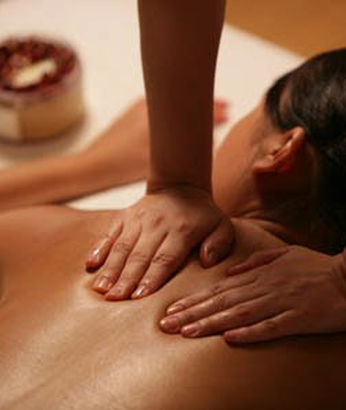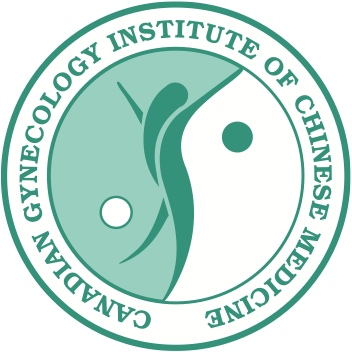How We Treat
We are committed to balancing and improving your health with Traditional Chinese Medicine. A wide variety of diseases can be treated using methods including acupuncture, herbs, moxibustion and Tuina massage.
In addition to being experts in Traditional Chinese Medicine, our Practitioners are trained in Integrative Medicine and can understand the test results and diagnoses you may have received from other Medical Professionals.
Here at Radiance Chinese Medicine and Wellness Centre, we pride ourselves on our friendly, welcoming environment and dedicated, knowledgeable Practitioners. Below is some information about what to expect and details about many of our treatment methods.
Clinic Visit
To prepare for a visit, please wear comfortable, loose clothing. On your first visit there will be forms to complete or you can download them now and fill them out ahead of time. The initial intake is comprised of thorough questioning, pulse diagnosis and tongue diagnosis, all of which are imperative for a proper diagnosis. Your initial visit generally lasts about an hour and a half, with subsequent visits usually lasting approximately an hour.
Traditional Chinese Medicine is an individualized approach to health and well being. As such, the course of treatment also varies from person to person, though you should be able to feel some healthy changes within one to six weeks. Depending on the nature of your complaint, it may be more beneficial to visit the clinic multiple times a week at first and then start to spread out your appointments as your symptoms ease.
Patient Consent Form
Intake Form
Private Medical Insurance
These treatments may be covered by private medical insurance companies. Please check with your insurance company to ensure your treatments are covered.
Treatments Available at Radiance Chinese Medicine and Wellness Centre
Herbal Medicine
Herbal medicine can strengthen weakness or reduce blockages. Herbs are available in powders, pills and decoctions which we can prepare or can be prepared at home.
Herbal medicine is taken daily until the symptoms have cleared, usually for 3 cycles, and possibly longer for long standing issues.
Acupuncture
Acupuncture, as with herbal medicine can reduce blockages, increase circulation and nourish deficiencies. Acupuncture is known to have a regulating effect on the hormones. Modern science is beginning to study the way acupuncture works, and they are finding that it is able to stimulate and regulate the release of hormones.
Acupuncture is done 1-2 times per week until the desired effect is achieved.
Massage
We offer both RMT Massage (Registered Massage Therapy) and Chinese Tuina (literally “push” and “lift and squeeze”).
When applying Tui Na, the practitioner uses fingers, hands, elbows and knees to stimulate acupuncture points, correct the flow of meridian pathways and activate the circulation of qi and blood in muscles, joints and tissues. Techniques may be gentle or quite firm. The practitioner may brush, knead, roll, press, and rub specific areas to relieve pain and tension and restore balanced circulation throughout the body.
Heat Lamp
An infrared heating lamp is an added tool used during acupuncture treatments, it is especially beneficial for cases involving cold.
Moxibustion
Moxibustion is a traditional Chinese medicine therapy which consists of burning dried mugwort (moxa) on particular points on the body.
Cupping
Cupping therapy is an ancient form of medicine using special cups on your skin to create suction. People get it for many purposes, including to help with pain, inflammation, blood flow, relaxation and well-being.
Hip Bath
Raw herbs are boiled at home and the liquid is added to a small bath, deep enough to soak the hips in.
Hip baths are taken daily for 15- 20 minutes daily while taking internal herbal medicine.
Herbal Enema
Raw herbs are boiled at home and the liquid is added to an enema bag for use in the anus.
Enemas are taken daily while taking internal herbal medicine.
Herbal Compress
Raw herbs are boiled at home and the liquid is soaked into a cloth and placed on the lower abdomen for about half an hour.
Herbal compresses are taken daily for 30-45 minutes daily while taking internal herbal medicine.

Traditional Chinese Herbal Medicine
Chinese Herbal Medicine has a long history of use, about 3000 years.
Chinese herbs come from plant, mineral and animal sources. There are hundreds of commonly used herbs that practitioners of Chinese Medicine will utilize. Plant materials are the most commonly used sources. Roots, fruits, leaves and barks are all utilized.
The herbs are prescribed in the raw form which is boiled into a tea/soup, in concentrated granules and pre-made pill form. Each kind has it’s own pros and cons.
Using herbal medicine to heal may even be older than human history goes, there is evidence that apes and other animals also seek out herbal remedies to feel better.
Many of todays modern pharmaceuticals have their roots in herbal medicine, a famous examples being willow bark to reduce fever which lead to aspirin and morphine being derived from the poppy.
How Does it Work?
Traditional Chinese Medicine is all about individualized treatments, and with herbal medicine the treatment formulas can be prescribed very precisely. A diagnosis specific to Chines Medicine is determined, the root imbalance is identified. Herbs are selected according to this imbalance, not according to the symptoms, this is the key. A cure will not be achieved while just treating the symptoms that one is feeling, the symptoms are just the manifestation of the problem-the body’s cry for help which shouldn’t be ignored.
Chinese herbs are categorized by their main functions, they can be releasing, harmonizing, strengthening, reducing, moistening, calming, stimulating, warming, cooling etc.
The herbs are often combined into formulas comprising anywhere from 2 to 20 ingredients. While in combination, the effects of the individual herbs join together to create new compounds, functions can be strengthened or lessened.
Is it Safe?
When prescribed by a trained professional, herbal medicine is very safe. Herbs are powerful, they have to be prescribed with knowledge. Some of the most poisonous and powerful substances come from plants. There are circumstances when a practitioner would prescribe a toxic herb, but it is less common and it is done with knowledge behind it. In many traditional medicine styles toxic substances are used to treat severe illnesses. Some herbs have negative interactions with pharmaceutical drugs and a trained professional will know which ones these are. The average herbal formula is very safe and can be taken with pharmaceuticals. The most common herb-drug interaction is stomach upset, this can be easily avoided by separating drugs and herbs by about 2 hours.
How Long do I Need Treatment?
The general rule is that the shorter that one has had an ailment, the quicker it can be resolved. The longer one has suffered with a chronic illness, the longer it will take to resolve. The body will gradually be brought back into balance. Everyone will respond differently. For a chronic illness one can expect to take herbal medicine for months at a time. We will often prescribe strong tea decoctions at the start and move to less strong herbal pills for long term maintenance.
Are There Any Side Effects?
The rule of treatment is to do no harm while getting someone better. There are no negative or harmful side effects associated with properly prescribed herbal medicine. Occasionally there can be some minor stomach upset or irritation, this can be remedied by adding or subtracting ingredients.
Acupuncture
How Does it Work?
According to the theory in Chinese Medicine, acupuncture works by stimulating points along energy meridians. Different points have different functions and are chosen based on the diagnosed pattern of imbalance. Energy needs to be regulated, tonified or reduced.
Modern research has uncovered many mechanisms on how acupuncture affects the human body. It regulates the autonomic nervous system, which will create changes in blood pressure, pupil size, muscle activity, heart and pulse rates and skin temperature.
The research shows that there are definite parallels between TCM theory and biomedical theory. Specifically, Chinese Medicine’s ability to regulate the Yin and Yang translates into regulating the relationship between the sympathetic and parasympathetic nervous systems.
Many studies demonstrate the ability of acupuncture to regulate the autonomic nervous system and affect functions within the hypothalamus, medulla oblongata, ventrolateral periaqueductal gray and dorsomedial prefrontal cortex of the brain.
Also affected are neurotransmitters and amino acids, acupuncture is able to stimulate the release of such substances.
After reviewing studies which demonstrate acupuncture’s biological effects on the body, the investigators also note that sham acupuncture does NOT affect the body in the same positive manner.
Reference:
Li, Qian-Qian, Guang-Xia Shi, Qian Xu, Jing Wang, Cun-Zhi Liu, and Lin-Peng Wang. “Acupuncture Effect and Central Autonomic Regulation.” Evidence-Based Complementary and Alternative Medicine 2013 (2013).
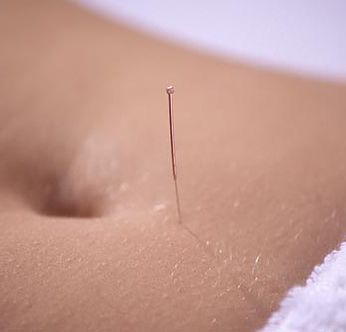
How Does it Feel?
Generally acupuncture doesn’t feel like much, a small pinch when the fine needle goes into the skin. Most people get a deep feeling of relaxation and release while getting acupuncture. Discomfort sometimes comes when people tense up in anticipation of the needle.
How Many Sessions Will I Need?
The number of sessions that someone will require are dependant on a number of factors, such as how long the person had the problem, the age of the person, the body type of the person and even the season.
The longer the person has had the condition, the longer it would take to treat. Acute or new problems can be dealt with relatively quickly. Acupuncture effects are considered accumulative, that is the effects will last longer after each consecutive time of receiving the therapy. Each session of acupuncture will bring the body into balance a little more, as it is a gentle therapy and moves in harmony with the body. After the session, the body will fight to get back to it’s previous condition. That is symptoms most often return after the first session when dealing with complex and systemic problems. This may be why this type of medicine brings lasting results, because gradual change will bring lasting change.
How Often Should I get Acupuncture?
Ideally in a perfect world, acupuncture can be performed daily or multiple times per day. In the busy Western world this isn’t very practical. Good results can be achieved with weekly appointments and it is encouraged that herbal medicine be taken at the same time to enhance and work together with the acupuncture. Traditional Chinese Medicine is made up of modalities that work together, they are not meant to be used separately.
When dealing with cycle issues for women, sessions may need to be done at certain times in the cycle.
Will Acupuncture Affect my Medications?
No, acupuncture is safe and may actually allow a person to reduce the medications that they take.
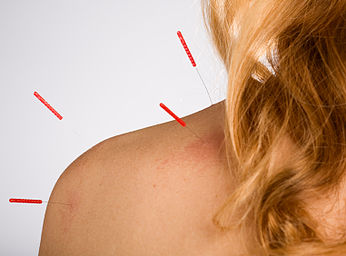
Massage
We offer two types of massage: traditional asian massage called “Tuina” and registered massage therapy (RMT)
Tuina is translated as pushing and grasping, it is usually done over the clothes and is performed based on the theories of TCM with the principle that the practitioner is either taking away or adding energy.
Tuina is one important component of Traditional Chinese Medicine, using techniques and manipulations to stimulate acupuncture points, which can sometimes be mistaken for acupressure. However, Tuina does not only stimulate acupuncture points, but also covers wider range of the body surface so as to correct physiological imbalances in the body.
Tuina is the basis upon which many modern complementary therapies are based, such as shiatsu, acupressure, baby massage, deep tissue massage, sports massage and lymphatic draining to name but a few. Chiropractic and physiotherapy manipulations are also founded on Tuina techniques.
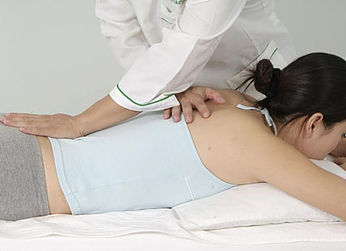
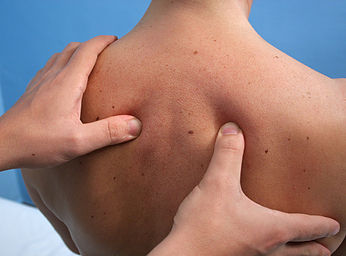
Benefits of Tuina:
Tuina rectifies anatomical abnormalities of both inner and outer surfaces by altering the energy level of the biological system and adjusting the bio-information of the body. Tuina helps to treat many disorders from soft tissue injuries to many other kinds of ailments such as:
- stiff neck and distension of shoulders
- frozen shoulder
- sore back
- sciatica
- aching muscles
- diarrhoea
- constipation
- low energy
- stress-related symptoms such as insomnia, headache, tension headaches
Tuina (sometimes called trauma therapy) breaks down scar tissue to relax muscles and tendons and creates the road for the blood and Qi to circulate in a proper way by removing blood stasis, and of course most importantly, to speed up the healing process.
We also offer RMT massage, done using oil with hand to skin contact which creates a very relaxing feeling. Muscles are targeted to relieve pain, discomforts and for relaxation.
